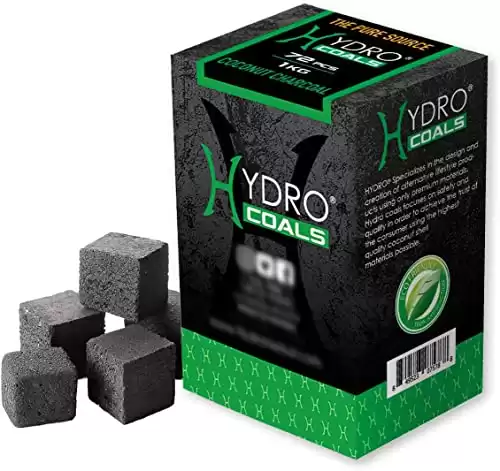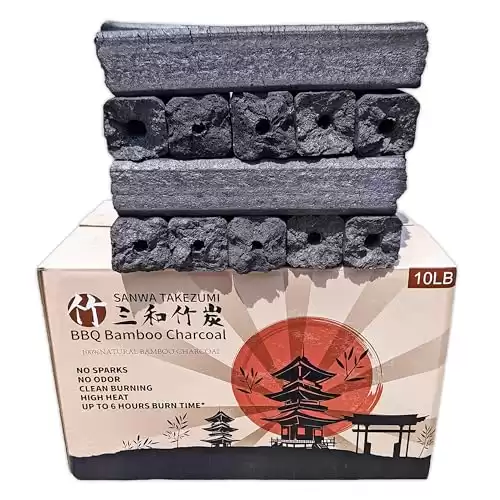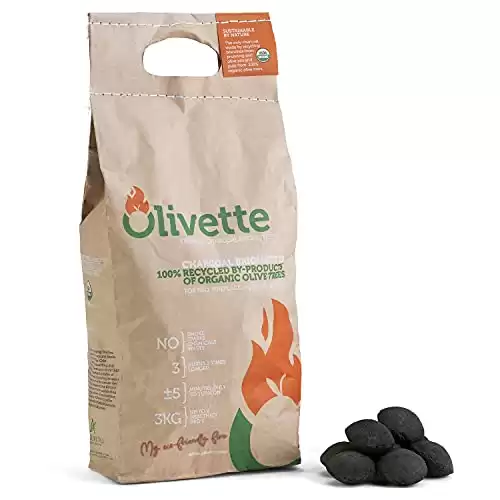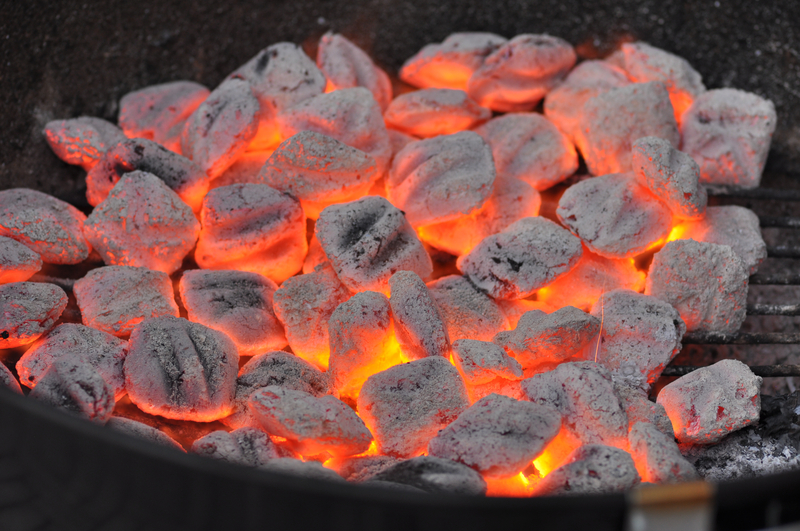 Charcoal has been used for centuries as a fuel source and for various other purposes.
Charcoal has been used for centuries as a fuel source and for various other purposes.
It is commonly known for its ability to absorb impurities and toxins, making it a popular ingredient in water filtration systems, air purifiers, and even skincare products.
However, concerns have been raised about the toxicity of charcoal and its potential health effects.
Many people are now questioning whether non-toxic charcoal exists and whether it is a safer alternative to traditional charcoal.
Non-toxic charcoal is charcoal that is free from harmful chemicals, additives, and contaminants.
It is produced using natural and sustainable methods that do not harm the environment or human health.
While there are various types of charcoal available in the market, not all of them are non-toxic.
In this article, we will explore the concept of non-toxic charcoal, its benefits, and how to identify and use it safely.
Eco-Friendly Charcoal Alternatives
|
Our Rating:
4.3
|
Our Rating:
4.0
|
Our Rating:
4.2
|
|
$13.99
|
$36.99
|
$23.99
|
|
Description: Crafted from coconut shells, making it a natural and eco-friendly choice for grilling and BBQ. These cubes are non-toxic, odorless, and long-lasting, ensuring a clean burn that preserves the natural flavors of your food. With minimal waste and a sustainable origin, it’s the perfect option for those who care about the environment without compromising on performance. |
Description: Delivers a premium grilling experience with its 100% natural, chemical-free composition. Smokeless and capable of burning for up to 7 hours, this bamboo charcoal offers consistent, long-lasting heat. Its eco-conscious production and sustainable material make it ideal for environmentally mindful BBQ enthusiasts. |
Description: Made from recycled olive tree byproducts, Organic Charcoal Briquettes by Olivette are a USDA-certified, eco-friendly grilling solution. Perfect for sustainable grilling, they burn cleanly and efficiently, offering a flavorful BBQ experience with a smaller carbon footprint. |
Crafted from coconut shells, making it a natural and eco-friendly choice for grilling and BBQ. These cubes are non-toxic, odorless, and long-lasting, ensuring a clean burn that preserves the natural flavors of your food. With minimal waste and a sustainable origin, it’s the perfect option for those who care about the environment without compromising on performance.
Delivers a premium grilling experience with its 100% natural, chemical-free composition. Smokeless and capable of burning for up to 7 hours, this bamboo charcoal offers consistent, long-lasting heat. Its eco-conscious production and sustainable material make it ideal for environmentally mindful BBQ enthusiasts.
Made from recycled olive tree byproducts, Organic Charcoal Briquettes by Olivette are a USDA-certified, eco-friendly grilling solution. Perfect for sustainable grilling, they burn cleanly and efficiently, offering a flavorful BBQ experience with a smaller carbon footprint.
Understanding Charcoal
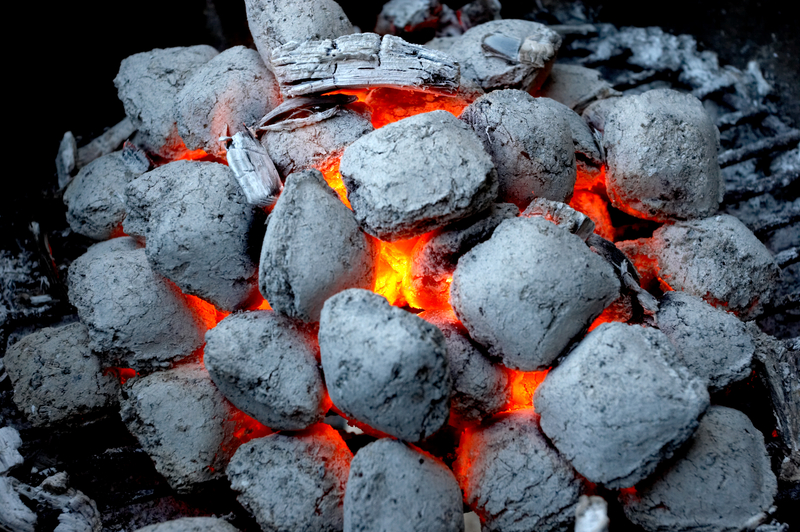
Charcoal is a popular fuel source used for cooking, heating, and industrial processes.
It is made by burning wood or other organic materials in a low-oxygen environment, which removes water, volatile compounds, and other impurities from the material.
The resulting product is a lightweight, black, and porous substance that is rich in carbon.
Types of Charcoal
There are two main types of charcoal: lump charcoal and briquettes.
Lump charcoal is made by burning hardwoods such as oak or maple in a kiln or pit, while briquettes are made by compressing charcoal dust and other additives into uniform shapes.
Lump charcoal is considered to be the more natural and pure form of charcoal, as it contains no additives or fillers.
It also burns hotter and faster than briquettes, making it a popular choice among grilling enthusiasts.
However, it can be more expensive and less consistent in quality than briquettes.
Briquettes, on the other hand, are cheaper and more widely available than lump charcoal.
They also burn longer and more evenly, making them a good choice for slow-cooking or smoking.
However, they may contain binders and other additives that can affect the flavor of the food being cooked.
Charcoal Production Process
The process of making charcoal involves heating wood or other organic materials in a low-oxygen environment, such as a kiln or pit.
This process, known as pyrolysis, drives off water and volatile compounds from the material, leaving behind a carbon-rich substance.
The quality of the charcoal depends on several factors, including the type of wood or material used, the temperature and duration of the burn, and the method of production.
Charcoal made from hardwoods such as oak or maple is generally considered to be of higher quality than that made from softwoods or other materials.
In conclusion, understanding the basics of charcoal production and the different types of charcoal available can help consumers make informed decisions about which product to use for their specific needs.
While there is no such thing as completely non-toxic charcoal, choosing a natural and additive-free product can help minimize potential health risks.
Non-Toxic Charcoal
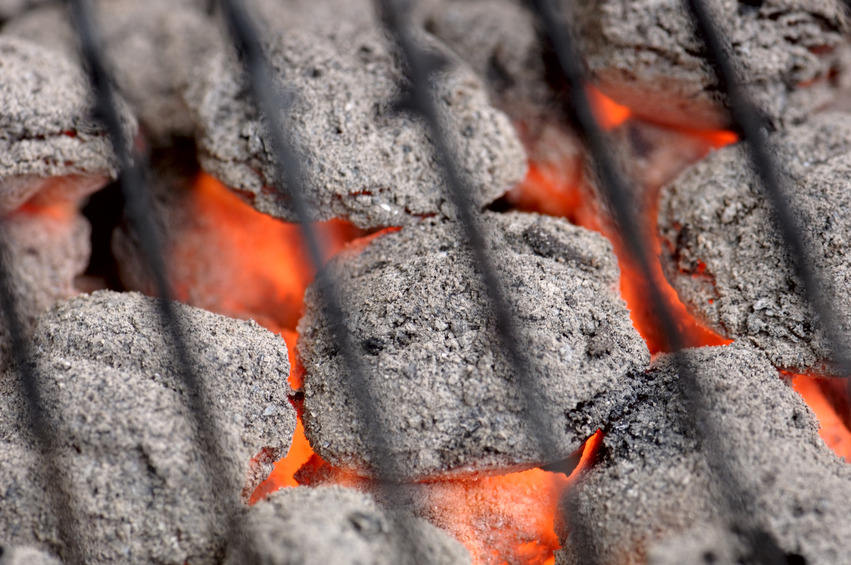
Charcoal is a popular fuel source for grilling and smoking food.
However, traditional charcoal can contain harmful chemicals and pollutants that can be released into the air and food.
Non-toxic charcoal is a safer and healthier alternative that is becoming increasingly popular among consumers.
Characteristics of Non-Toxic Charcoal
Non-toxic charcoal is made from natural materials such as bamboo, coconut shells, and hardwoods.
It does not contain any additives, chemicals, or synthetic materials that can be harmful to human health or the environment.
Non-toxic charcoal is also produced using sustainable and eco-friendly methods.
One of the key characteristics of non-toxic charcoal is that it produces less smoke and ash compared to traditional charcoal.
This makes it a cleaner and more efficient fuel source for grilling and smoking food.
Non-toxic charcoal also burns at a higher temperature, which results in faster cooking times and a more even heat distribution.
Benefits of Non-Toxic Charcoal
Using non-toxic charcoal has several benefits for both human health and the environment.
Firstly, it reduces the risk of exposure to harmful chemicals and pollutants that can be released during the burning process of traditional charcoal.
This can help to prevent respiratory problems and other health issues.
Secondly, non-toxic charcoal is a more sustainable and eco-friendly fuel source.
It is made from renewable materials and produced using methods that have a lower impact on the environment.
This can help to reduce carbon emissions and promote a more sustainable way of living.
Overall, non-toxic charcoal is a safer and healthier alternative to traditional charcoal.
It offers several benefits for human health and the environment, making it a popular choice among consumers who are looking for a more sustainable and eco-friendly fuel source for grilling and smoking food.
Health and Safety
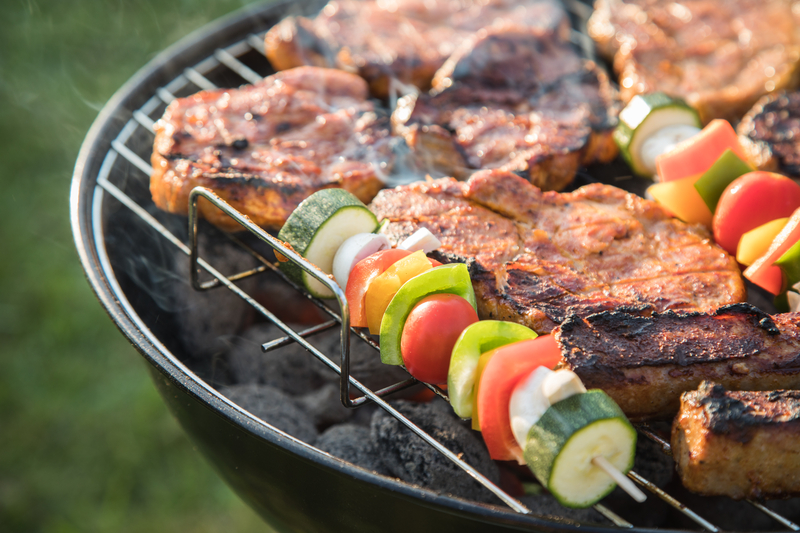
Health Impacts of Charcoal
Charcoal has been used for centuries for cooking, heating, and in industrial processes.
However, there are concerns about the potential health impacts of using charcoal, especially when it comes to indoor air pollution.
Burning charcoal can release carbon monoxide, nitrogen oxides, and particulate matter into the air, which can lead to respiratory problems, especially for people with pre-existing conditions such as asthma or chronic obstructive pulmonary disease (COPD).
In addition, charcoal briquettes may contain additives such as borax, limestone, and starch, which can release harmful chemicals when burned.
Some studies have linked exposure to these chemicals to an increased risk of cancer and other health problems.
Safety Standards for Charcoal
To ensure the safety of charcoal products, various safety standards and regulations have been put in place by government agencies and industry organizations.
For example, the Consumer Product Safety Commission (CPSC) in the United States has established safety standards for charcoal grills and other related products.
These standards include requirements for labeling, warning labels, and testing to ensure that products meet safety standards.
In addition, the International Organization for Standardization (ISO) has developed standards for charcoal production and testing.
These standards cover various aspects of charcoal production, including the use of raw materials, production processes, and quality control.
Overall, while charcoal can provide many benefits, it is important to be aware of the potential health impacts and to use charcoal products safely and in accordance with established safety standards.
Charcoal in Environmental Sustainability
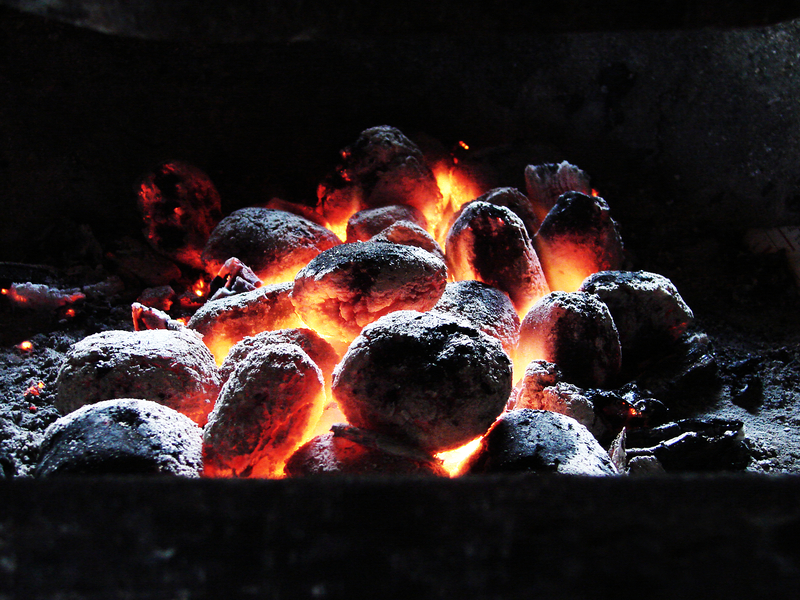
Charcoal is a popular fuel source that has been used for centuries.
However, the production and use of traditional charcoal have significant environmental impacts.
As a result, there has been a growing interest in finding eco-friendly alternatives that are more sustainable.
Charcoal and Deforestation
Traditional charcoal production involves cutting down trees and burning them in a process known as pyrolysis.
This process releases carbon dioxide and other greenhouse gases into the atmosphere, contributing to climate change.
Moreover, the widespread use of charcoal has led to deforestation, which has negative impacts on biodiversity and ecosystem services.
Eco-Friendly Charcoal Alternatives
There are several eco-friendly alternatives to traditional charcoal that are more sustainable and less harmful to the environment.
These include:
- Coconut Shell Charcoal: Made from the shells of coconuts, this type of charcoal is a renewable resource that does not require cutting down trees. It burns hotter and longer than traditional charcoal and produces less ash.
- Bamboo Charcoal: Made from bamboo, this type of charcoal is also a renewable resource that grows quickly and does not require replanting. It burns cleaner and produces less smoke than traditional charcoal.
- Charcoal Briquettes: Made from a combination of sawdust, charcoal fines, and starch, charcoal briquettes are a more sustainable alternative to traditional charcoal. They are made from waste materials and do not require cutting down trees.
In conclusion, the production and use of traditional charcoal have significant environmental impacts.
However, there are several eco-friendly alternatives that are more sustainable and less harmful to the environment.
By choosing these alternatives, individuals can help reduce their carbon footprint and contribute to a more sustainable future.
Consumer Guide
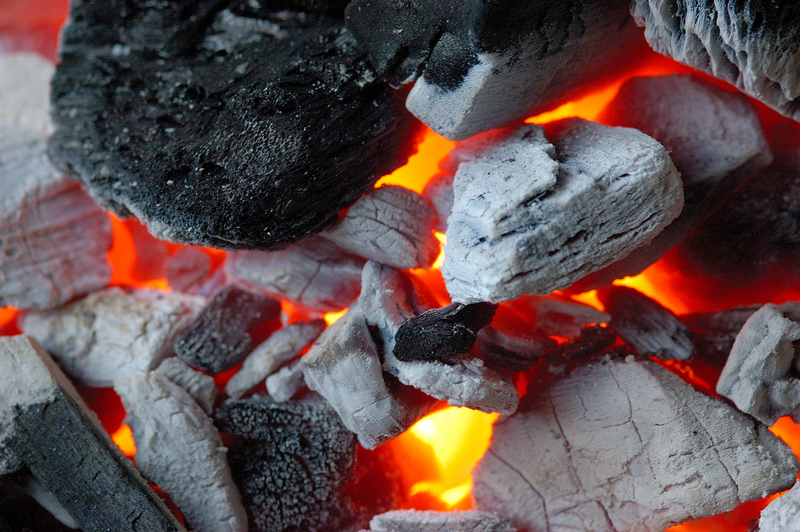
Identifying Non-Toxic Charcoal
When it comes to identifying non-toxic charcoal, there are a few things to keep in mind.
First, it’s important to look for charcoal that is made from natural materials, such as coconut shells or hardwood.
Charcoal made from treated wood or other chemicals can contain harmful toxins that can be released when burned.
Another factor to consider is the production process.
Charcoal that is made using a traditional method, such as a kiln or pit, is more likely to be non-toxic than charcoal that is made using modern industrial methods.
Finally, it’s important to look for charcoal that has been properly stored.
Charcoal that has been exposed to moisture or other contaminants can contain harmful toxins that can be released when burned.
Certifications and Labels
One way to identify non-toxic charcoal is to look for certifications and labels.
The Forest Stewardship Council (FSC) is an international organization that certifies sustainable forestry practices.
Charcoal that is certified by the FSC is made from sustainably harvested wood and is less likely to contain harmful toxins.
Another certification to look for is the USDA Organic label.
Charcoal that is certified organic is made from natural materials and is free from harmful chemicals and toxins.
When shopping for non-toxic charcoal, it’s important to read labels carefully and do your research.
Look for products that are made from natural materials, produced using traditional methods, and certified by reputable organizations.
By taking these steps, you can enjoy the benefits of charcoal grilling without exposing yourself or your family to harmful toxins.
Regulations and Compliance
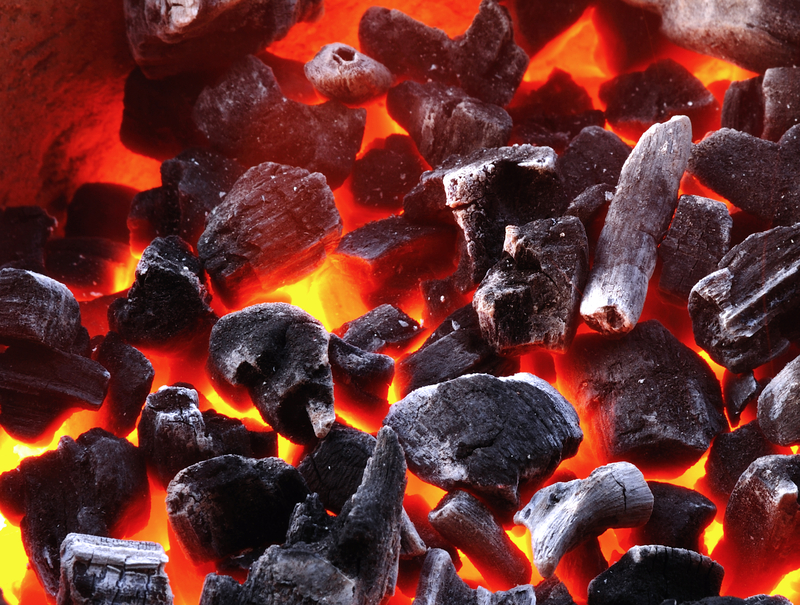
International Standards
The use of charcoal has been regulated by various international organizations to ensure that it is safe for human and environmental health.
One of the most prominent international standards is the European Union Timber Regulation (EUTR), which regulates the import of charcoal into the EU.
The EUTR requires that charcoal be legally harvested and produced and that it does not contribute to deforestation or illegal logging.
Another international standard is the Forest Stewardship Council (FSC), which certifies charcoal as being sustainably produced.
The FSC ensures that the charcoal is harvested from responsibly managed forests and that the production process is environmentally and socially responsible.
Regulatory Bodies
In addition to international standards, there are also regulatory bodies that oversee the production and sale of charcoal.
In the United States, the Environmental Protection Agency (EPA) regulates the emissions from charcoal production facilities to ensure that they do not release harmful pollutants into the air.
The Occupational Safety and Health Administration (OSHA) also sets standards for worker safety in charcoal production facilities.
In Canada, the Canadian Food Inspection Agency (CFIA) regulates the import of charcoal and ensures that it meets Canadian standards for safety and quality.
The CFIA also monitors charcoal for any contaminants that may be harmful to human health.
Overall, the regulation of charcoal production and sale is important to ensure that it is safe for human and environmental health.
By adhering to international standards and regulations set by regulatory bodies, consumers can be confident that they are using non-toxic charcoal that has been produced responsibly.
Market Trends
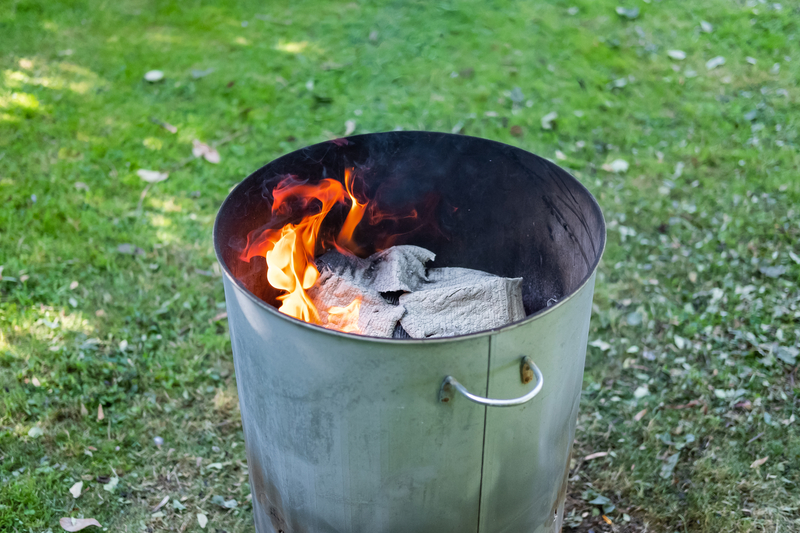
Demand for Non-Toxic Charcoal
As consumers become more aware of the potential health risks associated with traditional charcoal, there has been a growing demand for non-toxic charcoal products.
This has led to an increase in the availability of natural and organic charcoal products that are free from harmful chemicals and additives.
Many consumers are also looking for charcoal products that are sustainably sourced and produced, which has further driven the demand for non-toxic options.
This trend is expected to continue as more people become aware of the potential health and environmental risks associated with traditional charcoal products.
Innovation in Charcoal Products
In response to the growing demand for non-toxic charcoal products, there has been a surge in innovation in the industry.
Manufacturers are now developing new, natural, and organic charcoal products that are free from harmful chemicals and additives.
Some of the latest innovations in the industry include charcoal products made from coconut shells, bamboo, and other sustainable materials.
These products are not only non-toxic but also more eco-friendly than traditional charcoal products.
In addition to this, manufacturers are also developing new charcoal products that are designed for specific uses, such as grilling, smoking, and even air purification.
This is helping to expand the market for non-toxic charcoal products and is expected to drive further growth in the industry.


